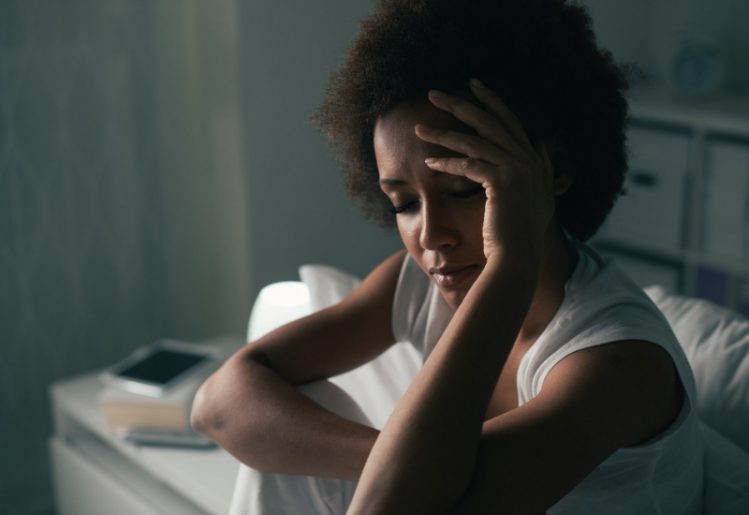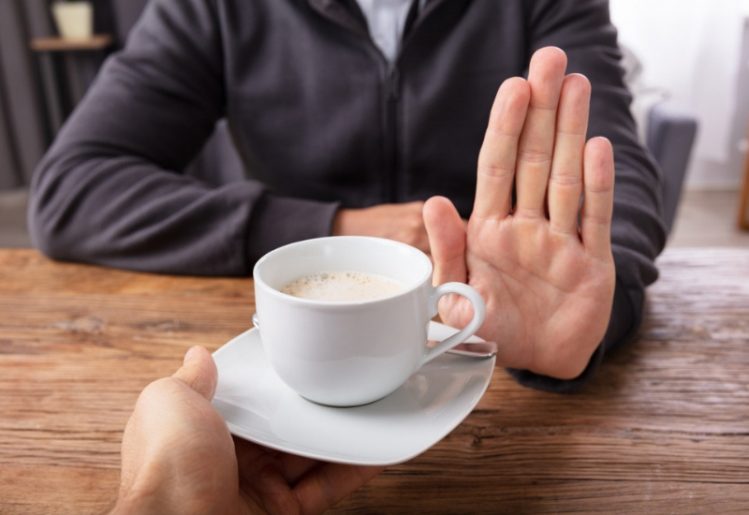Every May is designated Mental Health Month as a means of raising awareness about the importance of taking care of your emotional and psychological health. The link between COVID-19 and depression is becoming more apparent, making it essential to learn how to lower your risks for depressive episodes naturally.
How are COVID-19 and Depression Linked?
 Depression is always a timely issue to address, particularly because many people do not pay as much attention to their mental well-being as they should. In fact, one person out of every five will suffer from some type of mental illness in his or her lifetime, including depression, anxiety or bi-polar disorder.
Depression is always a timely issue to address, particularly because many people do not pay as much attention to their mental well-being as they should. In fact, one person out of every five will suffer from some type of mental illness in his or her lifetime, including depression, anxiety or bi-polar disorder.
The risk of depression is especially great as governments are extending lock-downs, economies are suffering and the pandemic continues to spread. All of these factors contribute to the stress that affects our mental health and, for those with a greater risk of experiencing depressive episodes, that stress can be very harmful.
The increased stress can also make people more susceptible to contracting this disease and other illnesses that can put their health at risk. We know that stress hormones compromise the functioning of the immune system, so it’s not surprising that people at a higher risk for depression also face a higher risk of contracting COVID-19.
Additionally, some people who have already been diagnosed with depression may rely on access to resources outside the home. Regular sessions with a therapist, group counseling or daily physical activity are just some of the activities that help people manage their depression. The shelter-in-place response to COVID-19 has made it impossible for many people to access these resources, leaving them to suffer more frequent, or more severe, depressive episodes.
What is Depression?
Depression is more than just a feeling of sadness, although that is one symptom of this common mood disorder. Depression also results in a loss of interest in doing activities that you normally enjoy, so even though you may not be feeling sad, you may still be suffering from a depressive episode. The condition can be brought on by a traumatic life event, such as the death of a loved one or the loss of a job, but you may not be diagnosed with depression unless the symptoms persist for an extended period of time.
The Symptoms and Signs of Depression
- sadness
- loss of interest in activities or hobbies
- loss of appetite and/or sexual desire
- unexplained weight changes
- change in sleeping habits
- inhibited cognitive abilities, such as a loss of concentration
- fatigue
- feelings of inadequacy
- thoughts about death, or attempts at suicide
Causes of Depression
Due to the link between COVID-19 and depression, it’s important to know when a loved one might be suffering from depression. While they may not have been diagnosed with the condition, you can determine a greater risk for the disorder by reviewing the factors that increase the likelihood of developing the condition. Currently, this is the best we can do until the underlying cause can be discovered. These factors include:
- Heredity: A history of depression in the family.
- Conflict or Tragedy: Life events, such as an ongoing dispute or a death in the family.
- Addiction: Substance abuse can either cause, or worsen, depressive episodes.
- Underlying Medical Conditions: Sleep disorders, chronic pain or cognitive disorders can lead to depression.
- Medication: Depression may be a side effect of some prescription drugs.
How Can You Alleviate Depression Naturally?
Add More Natural Herbs to Your Diet
Certain herbs that are found in nature have medicinal properties, and have been found to reduce the frequency or severity of depressive episodes. For instance, research has proven that St. John’s Wort helps boost mood by causing a greater production of serotonin, which is a “feel good” neurotransmitter in the brain.
Omega-3 fatty acids also help alleviate the symptoms of depression because they contain the two compounds (DHA and EPA) that a person with depression is often lacking. Other natural compounds to add to your diet include saffron, SAM-e (S-adenosylmethionine), and folate.
Take a Daily Supplement
Many types of supplements contain 5-HTP and tryptophan. These compounds are important, because they’re precursors to serotonin, and can promote the production of more of this important neurotransmitter. Certain studies have found that taking a supplement containing quick-release 5-HTP and timed-release tryptophan could help support a better mood.
Get More Exercise
 Raising the levels of serotonin in the brain is essential for alleviating the symptoms of depression, and getting more exercise is one of the best ways of doing that. As you work out, your brain will produce those good feelings that your brain relies upon to regulate mood. While 30 minutes of exercise per day is recommended, more physical activity will help the brain release more serotonin.
Raising the levels of serotonin in the brain is essential for alleviating the symptoms of depression, and getting more exercise is one of the best ways of doing that. As you work out, your brain will produce those good feelings that your brain relies upon to regulate mood. While 30 minutes of exercise per day is recommended, more physical activity will help the brain release more serotonin.
Ditch the Caffeine
When talking about addiction, people often overlook their caffeine habit. Unfortunately, caffeine can interfere with your brain’s ability to naturally regulate your mood, while also affecting sleep patterns. If you can’t eliminate caffeine from your routine, limit its consumption to the early morning hours.
Overall, living a healthier lifestyle and cutting out things like sugar, tobacco and alcohol, will help you feel better. This can go a long way towards helping your brain regulate your mood naturally. If you have made these changes in your life and you’re still experiencing depressive episodes, you should contact a mental health professional immediately.


